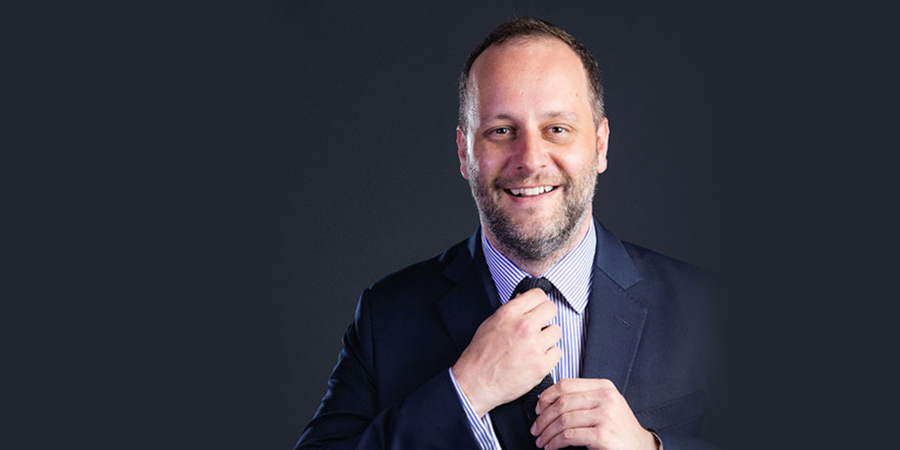LEAP23, the world’s most visionary technology event and now officially the best attended tech convention in the world, has just finished its second iteration at the Riyadh Front Exhibition and Conference Centre, featuring a host of innovative product launches, investment announcements and international partnerships.
Taking a deep dive into the motivation behind the four-day tech event, as well as the reasons for its success so far, Telecom Review sat down with Mike Champion, who heads LEAP-organizers Tahaluf, and gained an exclusive insight into this year’s event and a sneak peek into what LEAP 2024 might look like.
How crucial is the process of organizing a global tech event that so greatly influences the business and collaboration of leading tech players?
Planning is key to everything. Before our inaugural event had even finished, we were already thinking about LEAP23 and, as was seen again this year on the closing evening of our four-day show, we announced new plans for next year. So it’s always a case of looking to the future and being as organized as possible.
Of course, where an event is located, how it is positioned, and which leading tech players are participating are all fundamental to success. Saudi Arabia has the biggest G20 economy in the region and is the biggest adopter and purchaser of technology and IT – to my knowledge, the Kingdom buys as much as the rest of the GCC countries put together. There is also a lot of foreign direct investment coming in, underlining what this event is trying to do, which is ultimately drive Saudi Arabia’s digital transformation.
In terms of positioning, we have taken into consideration not only geographical but also political positioning. Partnering with the Ministry of Communications and Information Technology (MCIT) has been beneficial for us as it provides instant gravitas and helps open locked doors, while for them it obviously exemplifies how important their leadership role is in the technological adoption in the Kingdom.
Lastly, it’s essential that events such as LEAP are founded and administered as the fruit of collaboration among major international partners. For this reason, we can attract many of the biggest names in the industry and organise such a well-polished event despite it only being in its second year.
What made LEAP23 a success this year, and how will it serve as a benchmark for next year's edition?
LEAP22 was the largest debut tech event in history, yet this year’s event comfortably surpassed it with a quarter of a million registrations. The numbers not only represent huge upward momentum in terms of participation, but when drilled down also demonstrate four- to five-times more growth in the number of international visitors flying into Riyadh when compared to last year.
This year also saw our speaker faculty grow by 50 per cent and the investor faculty triple in size. We had 1,000 major investors – some 50 per cent of whom were female – and together they hold approximately three trillion dollars in assets under management, making it one of the most powerful sets of faculties for a tech event anywhere in the region.
I’m confident this momentum will continue into the next edition, which we now know will be an event on a far bigger scale at a venue more than double the size of the current location.
With the continuous innovation happening in the region and globally, how important are events like LEAP in terms of networking?
When I spoke to one of the startups, a member told me that when they go to other startup events around the world, angel investors come and offer them between US$25,000 and US$50,000. Here at LEAP, he got an offer of half a million dollars after one meeting – and that was while being only a visitor rather than an exhibitor.
Without a doubt, there’s a serious high-net-worth group of people in Saudi Arabia who are motivated to invest in technology, more so than any other country. On top of that, His Excellency Eng. Abdullah bin Amer Alswaha mentioned in his speech during the first day that nearly 380,000 people in San Francisco are qualified tech professionals. At present, there are over 340,000 qualified tech professionals in Saudi Arabia, and that number is growing.
More than US$9 billion in investments aimed at supporting the Kingdom and the wider region’s tech ecosystem were announced on the opening day of LEAP23. Two days later, a further US$580 million worth of investments were made public alongside the launch of a data centre and two dedicated academies. Those academies will help ensure the next generation has the skillsets required to grow that number of 340,000 tech professionals into millions.
The ecosystem is clearly moving in the right direction and in welcoming more than 50,000 female participants to LEAP23 is also highly inspiring for both technological innovation and for Saudi women.
From your perspective, how will industry trends significantly impact LEAP 2024, and how will you align this with next year’s event agenda?
Every year, we’re looking at what could be the core theme of the event. Our teams do a lot of research about technology trends throughout the year, and we discuss this with the ministers, speakers, and exhibitors. We ask them which of these trends have the most importance in the short-, medium- and long-term, and we aggregate the results to come up with different themes.
The first edition was about “Tech in Humanity,” revolving around how tech will serve us best. We’ve moved on from that with “Into New Worlds” aiming to look more at how technology has vastly changed the perception of how people interact with the world through sensory and artificial intelligence. I think the majority of people will agree that AI is the most important technology at the moment, so we really focused in on that with our inaugural DeepFest, which ran in partnership with the Saudi Data and Artificial Intelligence Authority (SDAIA).










